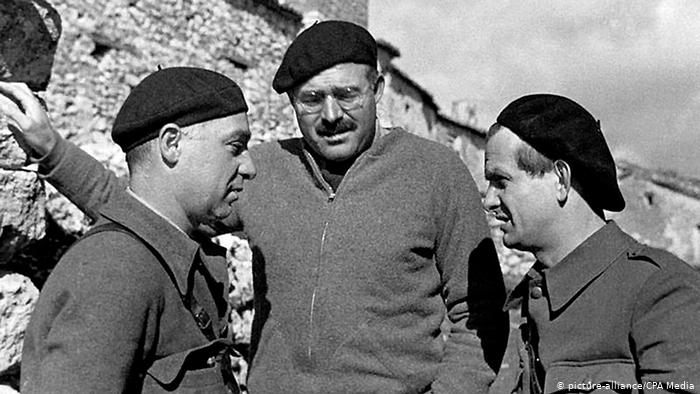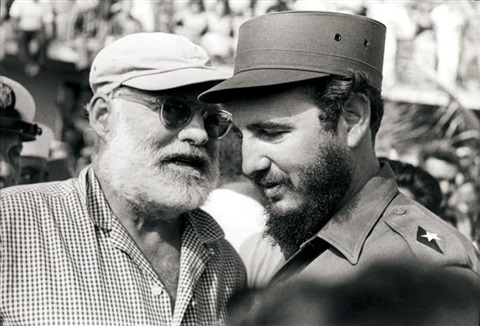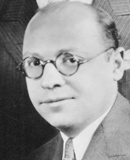Communists Have Controlled American Discourse Since 1930's
August 22, 2019

(Left, John Dos Passos left, and Hemmingway, center, in Spain)
During the Spanish Civil War, novelist John Dos Passos realized that Communism is a Jewish banker scam to gain totalitarian control by pretending to champion have-nots.
His friend Ernest Hemingway shot back: "Civil liberties, shit. Are you with us or against us?"
Then, getting no reply, Hemingway lifted a clenched fist to Dos Passos' face:
"You [quit] and you will be finished, destroyed. The reviewers in New York will absolutely crucify you. These people know how to turn you into a back number. I've seen them do it. What they did once they can do again."
by Harry Stein
(excerpt by henrymakow.com)
The case of Dos Passos is especially telling. In 1936, as a man of the Left, he was among America's leading novelists--arguably Hemingway's closest rival, having just published the third volume of his USA trilogy to wide acclaim, including a cover story in Time. It was thus understandable that he was among those recruited, along with Hemingway, to travel to Spain to make a film in support of the Republican cause.
However, while there, Dos Passos began making inquiries about a close Spanish friend who'd unaccountably vanished, and eventually learned that Stalin's secret police had murdered him. Belatedly, his eyes were opened to the bloodcurdling reality behind the myths so artfully propagated at home. Worse, he refused to stay quiet about it.
Lyons recounts the episode only briefly, making the point that, as a result, when the celebrated author's next book was published three years later, critics discovered "that Dos Passos had never really known how to write."

(Illuminati rentboy Ernest Hemingway with Justin Trudeau's father)
The story was told in greater depth by historian Stephen Koch in his book The Breaking Point. With access to Dos Passos's unpublished notes, he includes a chilling account of Hemingway's last meeting with his onetime friend. Dos Passos plaintively asked, "What's the use of fighting a war for civil liberties, if you destroy civil liberties in the process?"
Hemingway shot back: "Civil liberties, shit. Are you with us or against us?" Then, getting no reply, he lifted a clenched fist to the other's face: "You do that and you will be finished, destroyed. The reviewers in New York will absolutely crucify you. These people know how to turn you into a back number. I've seen them do it. What they did once they can do again."

MORRIE RYSKIND
Another figure who makes a brief appearance in The Red Decade is screenwriter Morrie Ryskind, and his example speaks to the influence that his leftist foes would continue to wield years after The Red Decade's publication--even during the blacklist years of the late 1940s and early 1950s.
One of the industry's most successful writers, he had numerous credits, running from the Marx Brothers' Animal Crackers and A Night at the Opera to My Man Godfrey and Stage Door. Ryskind broke ranks in 1947 by testifying in open session about Communist influence in the film industry.
"In the twelve years prior to my testimony," he'd write in his memoir, I Shot an Elephant in My Pajamas, "I was consistently one of the ten highest-paid writers in Hollywood. I turned down, on the average, at least three assignments for everyone I accepted, and I feel safe in saying I was welcome at every studio in town. After I testified against The Hollywood Ten, I was never again to receive one single offer from any studio."
Few today, and fewer still in Hollywood will summon up much sympathy for those like Ryskind. In the contemporary view, as expressed in books, movies, and PBS documentaries beyond counting, outspoken anti-Communists of that era were the equivalent of Salem's fanatics, paranoids fixated on a nonexistent international Communist conspiracy, while those who refused to cooperate (and paid with their livelihoods) were heroic martyrs to free speech and free thought.
Morally complex as that moment was, there were those on each side who fit these characterizations, and, of course, there's no question that the anti-Communist crusade swept up a great many more of Lyons's credulous Innocents than actual or even potential subversives. Yet it's also true that there were at least a handful who'd long since dispelled all doubt that their overriding loyalty was to the Stalinist state and, in some cases, had proved their ruthlessness in advancing its aims. And one can only shudder at what might have happened had their ilk achieved political power equal to their cultural influence.
COMMUNISM REJECTED, THEN EMBRACED
History didn't play out that way. To the contrary: the fall from public grace of that era's radical activists was so steep that for those growing up in the postwar years, the very word Communism was all but synonymous with barbarism and the crushing of the human spirit. For all Americans' internecine quarrels over that time and the doubts sown by Vietnam and Watergate, for five decades few questioned who were fundamentally the good guys and who were the bad, in the grand scheme. As late as 1989, in the jubilation following the fall of the Berlin Wall, it would have been hard even on American college campuses to find many who didn't believe that a profound evil had been defeated.
That's no longer the case today. From the Soviet gulags and the brutal crackdowns in Hungary and Czechoslovakia to children turning on parents during the Cultural Revolution and the Cambodian genocide, much that was once common knowledge seems to have been forgotten or gone unlearned. How many schools still make Orwell required reading? How many college history majors have even heard of the masterwork of his fellow prophet, Arthur Koestler, author of Darkness at Noon?
In today's Hollywood, where the 1950s blacklist stands as the great modern cautionary tale of the human capacity for evil, those with less than exemplary progressive politics routinely feel impelled to hide the fact from even close friends, and one can only guess at the grim fun Lyons would have with Tinseltown's ever-changing victim power ratings. Whose heroic struggle for justice constitute the hottest properties this week: women, African-Americans, gays, transgenders? Never mind that their box-office appeal is likely to extend no more than five miles beyond the studio gates.
---------------------
Related - Clash of Forces: Masonic and Communist Intrigues in Spain (Juri Lina) Thanks K!







NH said (August 24, 2019):
Thank-you for this wonderfully "literate" and eye-opening historical article, Henry. I credit you with the concept that "Literature is a trick" (and you should patent it). Literature is exactly what a bunch of kosher Baphomet-worshipping banker war-criminals say it is - and not one thing more. Of course, Communism is a master trick, antisemitism is a dirty trick, Hemingway was a trickster, the Spanish Civil War was Stalin's trick, Canada is a trick "country", my planned-obsolescent crapola vehicle is a trick, the money-from-thin-air mortgage on my wooden piece-of-junk house is a trick, it's all a trick - we live inside of one big fraud/scam/con/fake/trick
. Obviously that's the "matrix". It's all an outrageous lie. I call it "Rothschild's World" but according to Ezra Pound and Eustace Mullins, our world has been this way for at least the last 5000 years - that is, the Hebrew "tribe" has, since the early Babylonian empire, infiltrated, subverted and betrayed every major empire in history (save one). And we are now witnessing the betrayal phase of the American empire. By all appearances, our entire "history" is fake AF.
I ponder it. But it is very hard to come up with something (anything) that is NOT a scam or trick. My Womens-Liberation-3.0 wife was certainly a trick. My education was a hat trick. My stock market investments were a trick. My career as a programmer was a trick (replaced by a college grad - I am the epitome of the cartoon character Dilbert). In the U.S. Army (draftee, Viet Nam era) they told me: "Don't worry about dying, that's what you're here for" and "Don't worry about women, if we wanted you to have one we'd issue her to you." That's it, everything is issued, it's fake, it's a lie and it's a trick. And we are all just cannon-fodder for "them" and their manufactured wars and other nefarious projects that are always reminiscent of a bad B- sci-fi movie plot.
I tell people this: "there is not one blade of grass that is out of place on this Earth to the illuminati. For example, the junkie on your street-corner was created precisely as a market for the heroin TPTB are bringing in from Afghanistan. They deliberately created this whole sorry-mess-of-a-world using the power to counterfeit money, and what you and I see is just them continually re-making it to their further convenience, profit and satisfaction."
But man, we cannot ever forget about John Dos Passos and Morrie Ryskind. They fought back at great expense to themselves. We owe those guys.
https://www.pdfdrive.com/mullins-new-history-of-the-jews-1968-eustace-mullins-e13540239.html